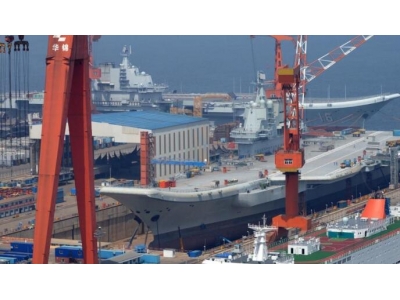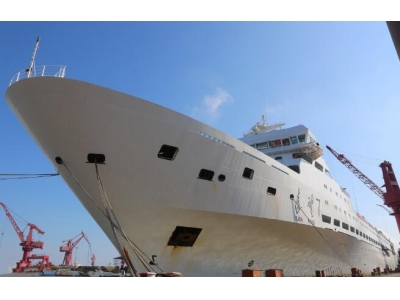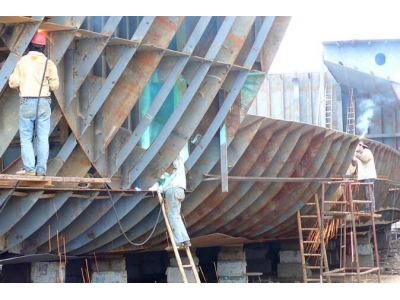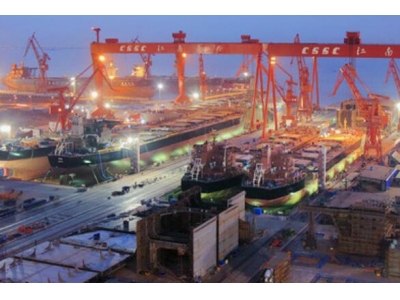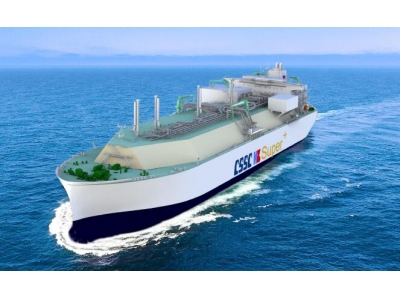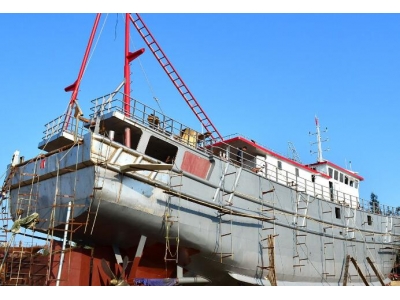一、Understanding Paulo Freire's Definition of Education
An Insight into Paulo Freire's Definition of Education
Education is a fundamental pillar of any society, shaping individuals and cultures. Paulo Freire, a Brazilian educator and philosopher, revolutionized the way we perceive education. His unique perspective on education emphasizes critical thinking, social justice, and the liberation of oppressed individuals. This article will delve into Paulo Freire's definition of education, exploring its key concepts and implications.
The Banking Concept of Education
Central to Freire's philosophy is his critique of the "banking concept" of education. In this traditional model, knowledge is seen as a mere deposit, with teachers serving as depositors and students as passive recipients. This approach perpetuates inequality, as students are discouraged from questioning authority and remain confined within predefined norms.
Freire challenges this conventional model by advocating for a "problem-posing" approach to education. According to him, education should not be a one-way transmission of knowledge, but a dialectical process of dialogue and liberation. Students become active participants, co-constructing knowledge and critically analyzing the world around them.
Education as a Practice of Freedom
Freire sees education as a transformative force that has the potential to emancipate individuals and communities from oppression. For him, true education is not solely focused on transmitting information, but on empowering learners to challenge societal injustices and transform their realities.
Instead of accepting the status quo, Freire encourages educators to engage in conscientization, the process of raising critical awareness of political, social, and economic systems. By promoting dialogues that identify oppressive structures, learners can become agents of change, working towards a more equal and just society.
Empowering the Marginalized
Freire's definition of education is deeply rooted in social justice. He emphasizes the importance of addressing the marginalization and dehumanization faced by oppressed groups. By promoting dialogue and empowering learners to critically analyze their circumstances, education becomes a means of liberation.
By recognizing the existing power dynamics, educators can work towards dismantling oppressive structures and empowering marginalized individuals. This process of empowerment allows learners to challenge societal norms, combat discrimination, and advocate for social change.
The Legacy of Paulo Freire
Paulo Freire's definition of education continues to shape educational practices around the world. His ideas have influenced pedagogy, curriculum development, and educational policies. Educators who adopt Freire's approach aim to cultivate critical thinkers, activists, and agents of change.
While there may be limitations and challenges in implementing Freire's vision, his ideas remind us of the transformative power of education. By embracing dialogue, critical thinking, and empowerment, education can become a tool for liberation and social justice.
Thank you for reading this article on understanding Paulo Freire's definition of education. By exploring his ideas, we hope to inspire a new generation of educators committed to fostering critical consciousness and creating a more just society through education.
二、Exploring the Educational Sociology of Illich and Freire
The Contributions of Illich and Freire to Educational Sociology
Education plays a crucial role in shaping societies and individuals. The field of educational sociology provides insights into the social structures and processes that influence education. Two prominent figures in this field are Ivan Illich and Paulo Freire, whose works have made significant contributions to understanding the complex dynamics of education. This article will explore the key ideas and theories of Illich and Freire, and their impact on educational sociology.
Ivan Illich: Deschooling Society
In his book "Deschooling Society," Ivan Illich challenges the traditional notion of education and advocates for a radical rethinking of the educational system. Illich argues that schools not only fail to fulfill their intended purpose of educating individuals effectively, but they also perpetuate social inequalities and reinforce oppressive structures. He suggests that education should be decoupled from institutions and be pursued through self-directed learning and community-based initiatives. Illich's ideas on deschooling have sparked important debates and discussions on alternative forms of learning.
Paulo Freire: Pedagogy of the Oppressed
Paulo Freire's influential work "Pedagogy of the Oppressed" focuses on the relationship between education and power. He criticizes the traditional "banking" model of education, where students are seen as passive recipients of knowledge. According to Freire, this approach further marginalizes individuals and perpetuates oppressive systems. Instead, he proposes a dialogical and participatory approach to education where learners are engaged as active participants in the learning process. Freire's concept of critical pedagogy has inspired educators around the world to promote social justice and empowerment through education.
The Impact on Educational Sociology
Both Illich and Freire have had a profound impact on educational sociology by challenging conventional wisdom and offering alternative perspectives on education. Their works have influenced researchers, educators, and policymakers in addressing issues such as educational inequities, social justice, and the role of institutions in shaping learning experiences. Illich's call for deschooling has paved the way for innovative educational approaches, including homeschooling, unschooling, and alternative education models. Freire's emphasis on critical consciousness and empowerment has reshaped teaching practices and curriculum design, promoting greater student engagement and social transformation.
Conclusion
The educational sociology of Illich and Freire offers valuable insights into the complex relationship between education and society. Their ideas have sparked important debates and inspired changes in educational practices. By questioning existing systems and empowering learners, Illich and Freire have paved the way for a more inclusive and transformative approach to education. As we continue to navigate the challenges and opportunities in education, their work serves as a reminder of the power and potential of education to shape individuals and societies.
Thank you for taking the time to read this article. We hope it has provided you with a deeper understanding of the educational sociology of Illich and Freire. Their ideas continue to shape educational discourse and practices, emphasizing the importance of reimagining education to promote social justice, empowerment, and meaningful learning experiences.
三、Understanding Paulo Freire's Philosophy of Education
Introduction
Paulo Freire, a renowned Brazilian educator and philosopher, has made significant contributions to the field of education. His philosophy emphasizes critical pedagogy and is centered around the idea of empowering learners through dialogue and reflection. This article explores the key principles and concepts of Freire's philosophy of education.
Context and Background
To fully understand Freire's philosophy of education, it is important to consider the context in which he developed his ideas. Born in 1921 in Recife, Brazil, Freire witnessed firsthand the social and economic inequalities that plagued his country. This experience deeply influenced his belief in the transformative power of education as a means of social change.
Key Concepts
1. Dialogue: Freire believed that education should be a collaborative process characterized by dialogue between teachers and students. Dialogue allows for the exchange of ideas and leads to a deeper understanding of the world.
2. Problem-posing Education: Freire argued that traditional education often promotes a "banking" model, where teachers deposit knowledge into students' minds. In contrast, he advocated for a problem-posing approach, where students actively engage with the material and critically reflect on the world.
3. Conscientization: This concept refers to the process of becoming aware of the social and political realities that shape our lives. Freire believed that education should empower individuals to critically examine these realities and work towards transformative action.
Application in Practice
Freire's philosophy of education has had a profound impact on teaching practices worldwide. Educators who embrace this approach create inclusive and participatory learning environments that encourage students to question, challenge, and critically analyze the world around them.
Critiques and Controversies
Like any educational theory, Freire's philosophy has faced its share of criticisms. Some argue that his emphasis on dialogue may neglect the need for disciplinary knowledge. Others suggest that his ideas may not be applicable in all cultural and social contexts.
Conclusion
Paulo Freire's philosophy of education offers a transformative vision for teaching and learning. By promoting dialogue, problem-posing education, and conscientization, Freire's philosophy empowers learners to become critically conscious individuals who can actively contribute to social change. Despite its critiques, Freire's ideas continue to inspire educators worldwide.
四、Paulo Freire's Impactful Ideas on Education
Introduction: Understanding Paulo Freire's Influence
Paulo Freire was a Brazilian educator and philosopher whose ideas revolutionized the field of education. Throughout his career, Freire emphasized the importance of critical thinking, dialogue, and empowerment in the educational process. His works continue to inspire educators worldwide and challenge traditional approaches to teaching and learning.
1. The Pedagogy of the Oppressed
Freire's most famous work, "The Pedagogy of the Oppressed," examines the relationship between education and liberation. He argues that traditional education often perpetuates oppression and stratification within society. Instead, he advocates for a liberating pedagogy that empowers students to critically analyze their social reality and take ownership of their education. Freire believes that through dialogue and mutual respect, learners can become active agents of change in their communities.
2. Problem-Posing Education
Freire challenges the traditional "banking model" of education where knowledge is deposited into students' minds. Instead, he proposes problem-posing education, which encourages students to critically engage with the world around them. In this approach, teachers act as facilitators, encouraging students to raise questions, explore different perspectives, and develop their own understanding of the subject matter. This method promotes critical thinking, creativity, and collaboration, fostering a deeper and more meaningful learning experience.
3. Dialogue as a Transformative Tool
Central to Freire's educational philosophy is the idea of dialogue. He believes that genuine dialogue promotes understanding, empathy, and respect. In the classroom, dialogue allows for the exchange of ideas and knowledge between students and teachers. It creates a democratic learning environment where everyone's voice is valued, fostering a sense of community and empowerment. Through dialogue, learners can challenge existing power structures and work towards social change.
4. Contextualizing Education
Freire emphasizes the importance of understanding the social, cultural, and historical contexts in which education takes place. Education should not be detached from the students' lived experiences and realities. Instead, it should acknowledge and incorporate their cultural and linguistic backgrounds, making the learning process more meaningful and relevant. By contextualizing education, Freire aims to bridge the gap between academic knowledge and the practical needs of the learners.
Conclusion: The Lasting Influence of Paulo Freire
Paulo Freire's ideas on education have left an indelible mark on the field, shaping educational practices around the world. His advocacy for critical thinking, dialogue, empowerment, and contextualization continues to inspire educators to create inclusive and transformative learning environments. By embracing Freire's principles, educators can instill a love for learning and empower students to become active agents of change in their communities and society at large.
Thank you for taking the time to read this article on Paulo Freire's impactful ideas on education. By understanding and implementing Freire's philosophy, educators can create meaningful and transformative educational experiences for their students, fostering critical thinking, dialogue, and empowerment. Together, we can work towards a more just and equitable society through education.
五、Paulo Freire's Powerful Quote on Education
The Wise Words of Paulo Freire: Unlocking the True Potential of Education
Education is a cornerstone of society, shaping the minds of individuals and paving the way for a brighter future. Brazilian educator and philosopher Paulo Freire, known for his influential contributions to the field of critical pedagogy, once said, "Education either functions as an instrument that is used to facilitate integration of the younger generation into the logic of the present system and bring about conformity, or it becomes the practice of freedom, the means by which men and women deal critically and creatively with reality and discover how to participate in the transformation of their world." These powerful words encapsulate Freire's profound perspectives on education, shedding light on the true purpose and potential it holds.
Freire believed that education should not be reduced to a mere tool for assimilating individuals into the existing societal norms and hierarchies. Instead, he advocated for an education system that empowers individuals to critically analyze the world around them and actively engage in shaping their own destinies. According to Freire, education should be a liberating force, enabling learners to understand the social and political structures that influence their lives and encouraging them to actively participate in transforming these systems for the better.
In Freire's view, the traditional banking model of education, where knowledge is deposited into passive students, must be challenged and replaced with a more dialogical and participatory approach. He emphasized the importance of dialogue between teachers and students, recognizing that education is a reciprocal process where both parties contribute knowledge and learn from one another. By creating an environment that encourages critical thinking, Freire believed that education can become a vehicle for social change, ultimately leading to a more just and equitable society.
Furthermore, Freire emphasized the need for education to be grounded in the lived experiences and realities of the learners. He argued that the curriculum should be relevant, addressing the issues and challenges faced by the students in their everyday lives. By connecting educational content to their personal experiences, learners become more engaged and motivated to learn, as the knowledge acquired becomes directly applicable to their own circumstances.
While Freire's ideas may have been considered radical in his time, they continue to resonate with educators and scholars today. His quote on education serves as a reminder of the profound impact education can have on individuals and society as a whole. By embracing education as a means to achieve freedom and social transformation, we can create a more inclusive and equitable world.
Thank you for taking the time to read this article on Paulo Freire's powerful quote on education. Through his insightful words, we are reminded of the transformative power of education and the importance of promoting critical thinking and active engagement in the educational process. Let us strive to create an education system that nurtures freedom, creativity, and social justice, empowering individuals to shape their own destinies and contribute to a brighter future for all.
六、造船厂工作总结
造船厂工作总结
在过去的几个月里,我有幸在一家知名的造船厂工作。这段时间里,我目睹了造船行业的辛勤努力和创新精神。在这篇博文中,我将总结我在造船厂工作的经历,并分享我的观点和收获。
了解造船工艺
作为一名新加入造船行业的员工,我花了大量的时间和精力去了解造船的各个环节和工艺。从设计阶段到建造、测试和交付,每个步骤都需要精确的计划和协作。
通过与经验丰富的工程师和技术专家合作,我学到了很多关于造船的知识。了解不同类型船舶的设计原理和船体结构、学习船舶动力系统和电子设备的安装、了解涂漆和防腐的技术要求等等。这些知识不仅加深了我对造船过程的理解,还提升了我的专业能力。
沟通和协作
在造船厂工作,沟通和协作是非常重要的。不同部门之间的合作需要高效的沟通和无缝的协调。我经常参与跨部门的会议和讨论,共同解决问题和改进工艺。
此外,为了确保项目的顺利进行,我还与供应商和客户进行频繁的沟通。及时反馈问题,协调资源,与各方保持良好的合作关系是我工作的重要部分。
挑战和解决方案
在我工作的这段时间里,我遇到了一些挑战,但我也学到了如何寻找解决方案并克服困难。举个例子,我们在一次大型船舶的建造过程中遇到了材料供应问题。我与采购团队紧密合作,寻找替代材料,并确保项目的按时交付。
此外,我还遇到了一些技术性的挑战。我们的工艺系统出现了故障,导致生产计划延误。我积极与技术人员合作,迅速解决了问题,并制定了预防措施,以避免类似情况再次发生。
持续学习和成长
在造船厂工作的这段时间里,我意识到持续学习和成长是非常重要的。船舶设计和建造技术在不断发展,保持与行业的最新趋势和技术革新保持同步是非常必要的。
因此,我积极参加行业会议和研讨会,阅读相关的专业书籍和期刊。我还利用业余时间学习船舶领域的新技术和软件工具,以提升自己的技能。
总结
在造船厂工作的这段时间里,我不仅学到了许多关于造船工艺和技术的知识,还培养了良好的沟通和协作能力,并面对各种挑战找到了解决方案。
我相信,持续学习和成长是我在造船行业中不可或缺的一部分。我将继续努力提升自己的专业能力,不断学习新知识,并为造船行业的发展做出自己的贡献。
谢谢大家阅读我的造船厂工作总结。如果您对造船行业有任何问题或建议,欢迎在评论中与我交流。
七、Paulo Freire's Views on Education: Empowering the Oppressed
Introduction: Understanding Paulo Freire's Perspective on Education
Paulo Freire, a renowned Brazilian educator and philosopher, has left a significant impact on the field of education through his groundbreaking perspectives and theories. In this article, we will explore what Freire had to say about education, focusing on his belief in empowering the oppressed through education.
The Banking Model of Education: Critique and Alternatives
One of Freire's most influential ideas is his critique of the traditional "banking model" of education. According to this model, students are seen as passive recipients of knowledge, while teachers are the depositors who transmit information. Freire strongly opposes this approach, arguing that it strips students of their agency and reduces them to mere receptacles.
Freire advocates for an alternative model called "problem-posing education". In this approach, students are active participants in the learning process, encouraged to critically think, question, and engage in dialogue. By fostering a collaborative and democratic learning environment, Freire believes that students can become critical thinkers and agents of change.
Education as a Liberating Tool
Central to Freire's philosophy is the notion that education should be a liberating tool, especially for those who are marginalized and oppressed by societal structures. He emphasizes the importance of developing a "critical consciousness" among students, enabling them to recognize and challenge the oppressive systems that perpetuate inequality.
Freire argues that education should not only provide knowledge and skills but also empower individuals to actively participate in shaping their own lives and society. By gaining a deep understanding of the social, economic, and political contexts that surround them, individuals can work towards creating a more just and equitable world.
Educators as Facilitators of Transformation
According to Freire, educators play a crucial role in the process of transformation. They should act as facilitators who guide and support students in their quest for knowledge and liberation. Instead of being authoritarian figures, teachers should foster a collaborative relationship with students, valuing their experiences and perspectives.
Furthermore, Freire emphasizes the importance of dialogue in education. Educators should engage in meaningful conversations with students, creating a space for mutual respect, understanding, and critical thinking. Through dialogue, students can develop their voice, express their ideas, and challenge existing power dynamics.
Conclusion: The Legacy of Paulo Freire
Paulo Freire's views on education continue to inspire educators around the world. By advocating for a student-centered, critical, and liberatory approach, Freire invites us to reimagine education as a means of empowerment and social transformation. Let us embrace his legacy and work towards creating educational systems that uplift and empower all individuals.
Thank you for taking the time to read this article. We hope it has provided valuable insights into Paulo Freire's perspective on education and the potential it holds for empowering the oppressed.
八、珠海杰腾造船厂现状
珠海杰腾造船厂现状:从默默无闻到国际航运巨头
珠海杰腾造船厂是中国船舶制造业的一颗璀璨之星,通过多年来的努力发展,已经从一个默默无闻的小厂发展成为国际航运巨头。如今,它在全球船舶制造业中占据重要地位,并为中国经济的发展做出了巨大贡献。
发展历程
珠海杰腾造船厂成立于上世纪80年代初,当时的它只是一个规模很小、生产能力较低的造船厂。然而,在经过几十年的发展和创新之后,它成功地实现了从小到大的转变。
在开始阶段,珠海杰腾造船厂主要生产一些小型渔船和客船。尽管市场上已经有了许多竞争对手,但它通过提供优质的产品和周到的服务,逐渐赢得了客户的认可和信任。
随着时间的推移,珠海杰腾造船厂逐渐扩大了生产规模,并开始生产大型商船和海洋工程船。它不断引进先进的技术和设备,并聘用了一批高素质的工程师和技术人员。这些举措使其在船舶制造领域脱颖而出,并成为国内外客户的首选合作伙伴。
竞争优势
珠海杰腾造船厂之所以能够获得如此高的评价和地位,是因为它拥有一系列独特的竞争优势。
- 先进技术:珠海杰腾造船厂始终致力于技术创新和研发投入。它与国内外多家知名院校和研究机构建立了紧密合作关系,并共同开展项目研究。这个不断追求卓越的态度使得它在技术水平上始终保持领先。
- 高素质团队:珠海杰腾造船厂注重人力资源的培养与发展。它拥有一支由经验丰富的工程师和专业人员组成的团队,他们拥有丰富的知识和经验,能够为客户提供专业化的解决方案。
- 优质服务:珠海杰腾造船厂始终坚持以客户为中心的原则,为客户提供全方位的服务。它以高质量、高效率的制造能力和贴心的售后服务赢得了广大客户的口碑。
未来展望
珠海杰腾造船厂作为中国船舶制造业的龙头企业,未来的发展前景十分广阔。
首先,随着中国经济的不断发展和对海洋资源的需求增加,船舶制造业将迎来更多的机遇。珠海杰腾造船厂凭借其优秀的制造能力和声誉,将能够占据更多的市场份额。
其次,珠海杰腾造船厂在技术创新方面一直走在前列,未来将继续加大研发投入,提升自身的核心竞争力。通过不断引进新的技术和设备,它将能够生产更加先进、高效的船舶产品。
最后,珠海杰腾造船厂将进一步加强与国内外合作伙伴的合作,拓宽国际市场。它将积极参与国际航运行业的竞争,并通过扩大海外业务,实现更高的发展目标。
综上所述,珠海杰腾造船厂在中国船舶制造业中的地位日益重要。它将继续秉承技术创新、高素质团队和优质服务的理念,为中国经济的繁荣做出更大贡献。
九、Exploring the Educational Philosophy of Paulo Freire: A Look into His Influential Books
Paulo Freire, a renowned Brazilian educator and philosopher, has had a profound impact on the field of education. Through his groundbreaking ideas and innovative approaches, Freire has challenged traditional educational systems and offered alternative perspectives. In this article, we will delve into some of his most influential books on education, exploring the key concepts and principles that have shaped his educational philosophy.
1. "Pedagogy of the Oppressed"
One of Freire's most famous works, "Pedagogy of the Oppressed," published in 1968, stands as a cornerstone of critical pedagogy. In this book, Freire presents a revolutionary approach to education, aiming to empower marginalized individuals and challenge oppressive systems. He emphasizes the importance of dialogue, critical consciousness, and praxis (the integration of theory and practice) in the process of liberatory education.
2. "Education for Critical Consciousness"
In "Education for Critical Consciousness," Freire further develops his ideas on critical pedagogy and proposes a transformative educational model that fosters social and political awareness. He explores the concept of conscientization, which involves raising consciousness about socio-political issues and encouraging individuals to become active participants in societal change. This book serves as a guide for educators who aspire to create a more equitable and just society through education.
3. "Pedagogy of Hope: Reliving Pedagogy of the Oppressed"
Building upon the ideas presented in his earlier work, "Pedagogy of Hope" reflects Freire's reflections and revisions on his original book, "Pedagogy of the Oppressed." Published in 1992, this book provides a deeper understanding of Freire's pedagogical approach and offers new perspectives on overcoming oppression and creating transformative educational practices. It reinforces the importance of hope, dialogue, and transformative action in the pursuit of social justice and liberation.
4. "Teachers as Cultural Workers: Letters to Those Who Dare Teach"
In this collection of letters addressed to teachers, Freire highlights the crucial role of educators as cultural workers. He advocates for a pedagogy that acknowledges the sociopolitical context in which education takes place, calling for teachers to engage in critical reflection and dialogue with their students. This book serves as a source of inspiration and guidance for educators who wish to create inclusive learning environments and foster students' critical consciousness.
5. "Pedagogy of Indignation"
"Pedagogy of Indignation" presents Freire's critiques of neoliberal education policies and advocates for a pedagogy rooted in social justice and democratic values. Freire argues that education should go beyond the mere transmission of knowledge and instead focus on fostering empathy, solidarity, and critical thinking. Through a series of speeches and interviews, he reflects on the challenges and possibilities of education in contemporary society, inviting educators to commit themselves to transformative practices.
These books by Paulo Freire offer invaluable insights into the transformative potential of education. By shedding light on the dynamics of power, oppression, and emancipation, Freire's writings continue to guide educators, researchers, and students in their quest for a more inclusive and just educational system. Through critical reflection, dialogue, and practice, we can all contribute to a society where education becomes a tool for liberation and empowerment.
Thank you for taking the time to explore the influential books on education by Paulo Freire. We hope that this article has provided you with a deeper understanding of his educational philosophy and inspired you to engage in transformative practices.
十、连云港造船厂招聘职位
连云港造船厂招聘职位及岗位要求
尊敬的读者朋友们,今天我为大家带来连云港造船厂的招聘职位及岗位要求。连云港造船厂作为中国造船业的一颗璀璨明珠,致力于培养和吸纳一批高素质的造船人才,满足国内外市场需求,为推动中国船舶制造业的发展做出了巨大贡献。
销售经理
岗位职责:
- 负责制定销售策略和计划,达成销售目标;
- 开展市场调研,了解客户需求,提供专业的解决方案;
- 推动销售团队的合作和沟通,提高销售绩效;
- 建立并维护良好的客户关系,开拓新客户;
- 及时更新销售数据和报告,定期向上级汇报工作进展。
岗位要求:
- 本科及以上学历,市场营销或相关专业;
- 具备3年以上销售工作经验,船舶或相关行业优先;
- 熟悉船舶市场,具备良好的客户资源和人脉;
- 具备良好的沟通能力和团队合作精神;
- 积极主动,具备较强的市场开拓和业务拓展能力。
钢结构工程师
岗位职责:
- 负责船舶钢结构设计和工艺规划;
- 编制船舶钢结构施工图纸和工艺文件;
- 协调相关部门解决设计和工艺问题;
- 负责工程进度和质量的控制;
- 提供技术支持和培训,指导施工人员。
岗位要求:
- 本科及以上学历,船舶与海洋工程或相关专业;
- 熟练掌握CAD、AutoCAD等绘图软件;
- 具备2年以上钢结构设计经验,船舶行业优先;
- 熟悉钢结构施工工艺,熟悉相关规范和标准;
- 具备良好的团队合作和沟通能力。
质量检测员
岗位职责:
- 负责船舶建造过程中的质量检测和验收;
- 编制质量检测方案和相关文件;
- 参与船舶建造的工艺评审和质量控制;
- 处理质量问题,提出改进意见;
- 协助解决质量纠纷,提供技术咨询。
岗位要求:
- 大专及以上学历,船舶与海洋工程或相关专业;
- 熟悉船舶质量管理和测试方法;
- 具备2年以上质量检测经验,船舶行业优先;
- 熟悉相关质量标准和规范;
- 具备良好的技术分析和解决问题能力。
船舶维修技工
岗位职责:
- 进行船舶设备和仪器的安装和调试;
- 负责船舶维修和故障排除;
- 参与船舶的定期保养和维护;
- 进行船舶设备的维护和更新;
- 协助其他技术人员完成工作任务。
岗位要求:
- 中专及以上学历,船舶相关专业;
- 熟悉船舶维修和故障排除流程;
- 具备2年以上船舶维修经验;
- 熟悉船舶设备和系统,具备维修技能;
- 具备良好的团队合作和解决问题能力。
以上所述为连云港造船厂的部分招聘职位及岗位要求,仅供参考。希望有志于船舶制造和航运业的各位朋友,可以根据自身能力和兴趣,选择合适的岗位。连云港造船厂欢迎优秀的人才加入,共同推动中国造船业的发展,为船舶制造贡献力量!

